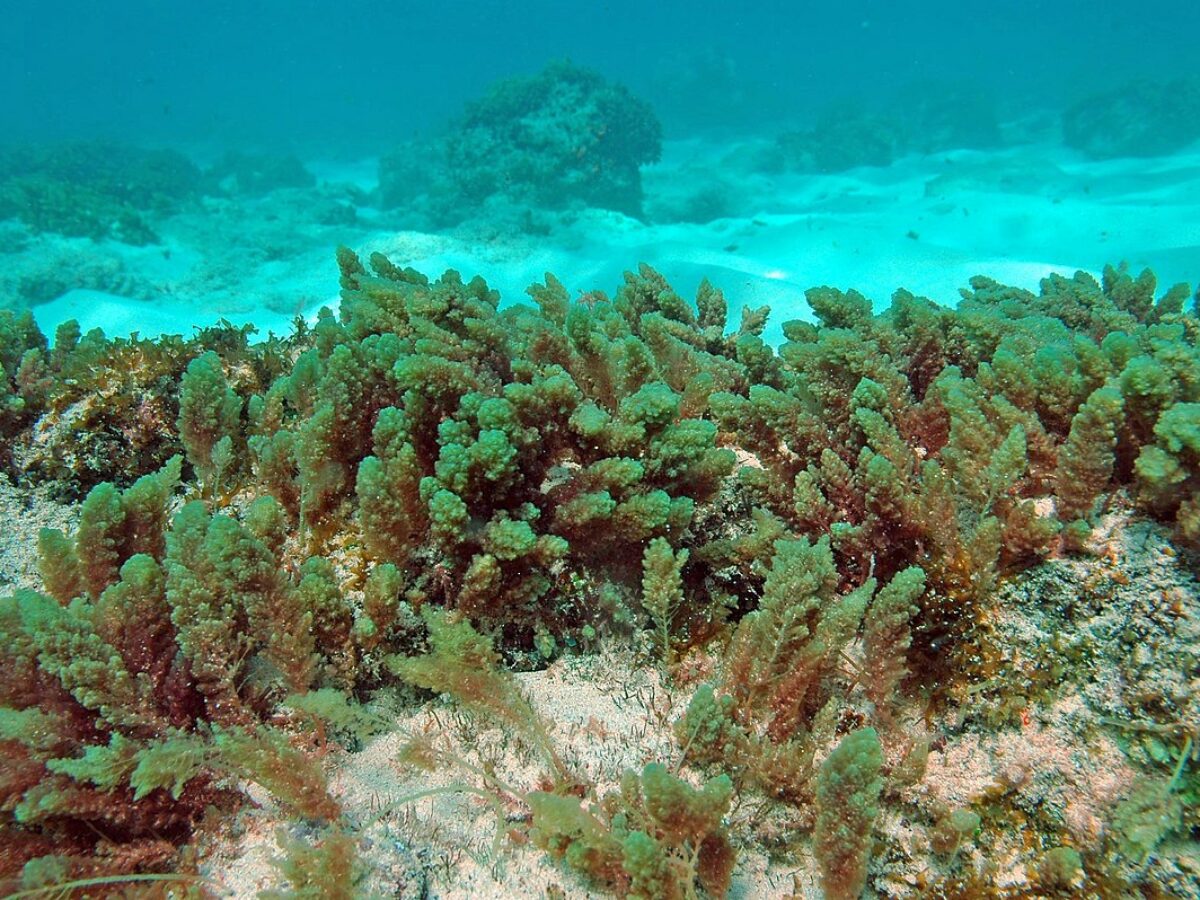Six agtech projects awarded $4 million on novel feeds for methane reduction

Six grants totalling $4 million have been awarded for projects investigating novel feeds to reduce methane emissions from livestock, based on seaweeds, tropical legumes and the chemical 3-NOP.
The grants are awarded under stage 1 of the federal government’s Methane Emissions Reduction in Livestock (MERiL) program. Ruminant livestock – such as sheep, cows and goats – are a major source of greenhouse gases, with 70 per cent of agricultural methane coming from the guts of these animals.
Industry minister Angus Taylor said the projects would collect data on the effectiveness of feeds and understand their impact on productivity and emissions to “help farmers make informed decisions on technology adoption in their day-to-day operations.”
Four of the six involve asparagopsis (pictured) a red seaweed native to Australia and New Zealand that is believed to offer promise for being scaled up and adopted in agriculture as a feed supplement. According to the Australian Seaweed Institute, asparagopsis could represent a $100 million market by 2025 and $1.5 billion by 2040
The projects are:
- Bovine Dynamics, in partnership with Sea Forest and Stockyard Feedlot (Kerwee), was awarded $1,000,000, to trial the use of the seaweed Asparagopsis in a large-scale commercial feedlot for Angus beef near Toowoomba, to understand its impacts on emissions and productivity including meat quality;
- CSIRO, in partnership with Mort & Co Lot Feeders, Australian Agricultural Company and Northern Australia Pastoral Company, was awarded $800,000 to trial the compound 3-NOP in tropical and northern beef cattle grazing systems. Trials will be conducted in Townsville and grazing properties in northern Queensland;
- Agrimix, in partnership with CSIRO, University of Tasmania, The University of New England and James Cook University, was awarded $700,000 to trial the forage feed Desmanthus – a non-bloating tropical legume – in grazing paddocks in three commercial grazing operations across New South Wales and Queensland;
- FutureFeed, in partnership with Meat and Livestock Australia, the University of New England, Australian Country Choice Holdings, Woolworths, Corporate Carbon Advisory, GrainCorp and Bovine Dynamics, was awarded $500,000 to test Asparagopsis seaweed in beef cattle in the University of New England’s Tullimba feedlot;
- The University of New England, in partnership with Australian Wool Innovation, and Sea Forest, was awarded $500,000 to trial the use of Asparagopsis seaweed in sheep in northern New South Wales; and
- GrainCorp, in partnership with Agriculture Victoria, Future Feed, Australian Lot Feeders Association, Midfield Meat International and Bovine Dynamics, was awarded $500,000 for laboratory trials to test Asparagopsis seaweed stability in livestock feed and on-field trials to determine methane emission reductions in livestock. Trials will be conducted at the Agriculture Victoria Research Ellinbank SmartFarm.
Picture: Wikimedia commons
Subscribe to our free @AuManufacturing newsletter here.
Topics Manufacturing News
@aumanufacturing Sections
Analysis and Commentary Awards casino reviews Defence Gambling Manufacturing News Online Casino Podcast Technology Videos

